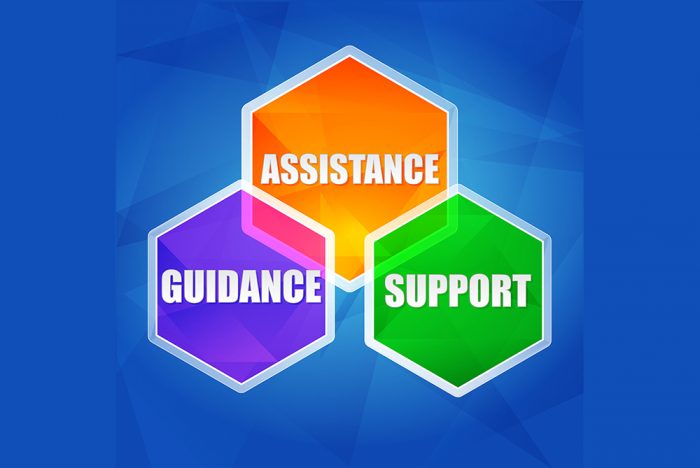RCPA Policy Staff Update
RCPA would like to officially announce that Jack Phillips, RCPA Director of Government Relations, has accepted a new position as Director of Government Affairs at Novak Strategic Advisors in Harrisburg, PA. Jack will be continuing his work with RCPA while assuming this new role. In most ways, members should see no change; presence at division meetings, updates at general meetings, oversight of the government relations meetings/calls, and lobbying activities at the Capitol will continue as before.
What this does offer is an opportunity for Jack to expand his reach in Harrisburg, and he has worked closely with RCPA on this transition to make this as seamless as possible. RCPA will also have access to other resources at Novak as needed. Please offer your congratulations to Jack on this new endeavor.
HHS Announces $3 Billion in American Rescue Plan Funding for SAMHSA Block Grants to Address Addiction, Mental Health Crisis
The Substance Abuse and Mental Health Services Administration (SAMHSA) is distributing $3 billion in American Rescue Plan funding — the largest aggregate amount of funding to date for its mental health and substance use block grant programs.
The Community Mental Health Services Block Grant (MHBG) Program and Substance Abuse Prevention and Treatment Block Grant Program (SABG) will disperse $1.5 billion each to states and territories (with the latter also awarding money to a tribe). This follows the March announcement of supplemental funding of nearly $2.5 billion for these programs. SAMHSA, an operating division of the U.S. Department of Health and Human Services, has expedited federal funding to grantees to help communities grappling with mental health and substance use needs during the COVID-19 pandemic.
Read the full press release here.
PA Assistive Technology Foundation Launches StudyMoney.us Today!

We are excited to announce the launch of our newly rebuilt and redesigned financial education website, StudyMoney.us!
This new, fully accessible, and user-friendly website makes financial education readily available to people with disabilities, their family members, advocates, and educators everywhere, at no cost. As part of PATF’s commitment to helping people with disabilities invest in their financial future, we pledge to contribute $1,000 in savings to five people ($200 each) as part of a two-week #StudyMoneyWithUs Giveaway.
 “Financial education is the foundation for independent living,” says PATF’s CEO, Susan Tachau. “When it comes to equity and inclusion, we believe comprehensive and accessible financial education can help level the playing field. That’s why we created this website and the curriculum on which it is based.”
“Financial education is the foundation for independent living,” says PATF’s CEO, Susan Tachau. “When it comes to equity and inclusion, we believe comprehensive and accessible financial education can help level the playing field. That’s why we created this website and the curriculum on which it is based.”
“People with disabilities and their families need information and tools to make wise financial decisions for their futures. StudyMoney.us is designed to do just that,” Tachau states.
StudyMoney.us is based on our award-winning financial empowerment curriculum, Cents and Sensibility: A Guide to Money Management and its companion educator manual.
Essential Workers — Essential Protections: Federal and State Labor Standards for Youth Employment in PA

WHEN AND WHERE ARE TEENS ALLOWED TO WORK?
As millions of teens enter the summer seasonal workforce, the U.S. Department of Labor has scheduled a webinar for teens, parents, employers, and educators on how federal and state laws protect teen workers. The virtual event will be held Thursday, May 27 from 9:00 am–11 am.
Representatives from the Wage and Hour Division’s Philadelphia, Pittsburgh and Wilkes-Barre district offices will join officials from the Pennsylvania Bureau of Labor Law Compliance to provide information and resources on regulations affecting youth employment, including the federal Fair Labor Standards Act and the Pennsylvania Child Labor Act.
Attendance for the webinar is free, but registration is required. Register here for the webinar.
The webinar is part of the division’s “Essential Workers – Essential Protections” initiative to offer training on critical workplace protections to workers in essential industries. This program builds on the division’s YouthRules! initiative, which promotes positive and safe work experiences for young workers by educating the public about the types of jobs teens can hold and the number of hours they can work.
OMHSAS Provides Updated Telehealth Guidance

New Indoor, Outdoor COVID-19 Capacity Limits Take Effect Today in Pennsylvania

DOH: Businesses Continue To Maintain Option To Require Individuals To Wear Masks
CMS Issues Interim Final Rule on COVID-19 Vaccination Requirements for LTC Facilities & IDD Residents/Staff
The Centers for Medicare and Medicaid Services (CMS) published an interim final rule with comment period (IFC) in the May 13, 2021 Federal Register that revises the infection control requirements that long-term care (LTC) facilities and intermediate care facilities for individuals with intellectual disabilities must meet to participate in the Medicare and Medicaid programs. The goal of this IFC is to reduce the spread of COVID-19 by requiring education about COVID-19 vaccines for LTC facility residents, ICF-IID clients, and staff serving both populations, and by requiring that such vaccines, when available, be offered to all residents, clients, and staff. It also requires LTC facilities to report COVID-19 vaccination status of residents and staff to the Centers for Disease Control and Prevention (CDC). These requirements are necessary to help protect the health and safety of ICF-IID clients and LTC facility residents. In addition, the rule solicits public comments on the potential application of these or other requirements to other congregate living settings over which CMS has regulatory or other oversight authority. The regulations are effective on May 21, 2021; however, comments will be accepted but must be submitted by 5:00 pm on July 12, 2021 to be assured for consideration.
Employment First Community of Practice Webinar: Value, Outcome and Performance-Based Payments
The Employment First Community of Practice webinar on “Value, Outcome and Performance-Based Payment Methodologies to Advance Competitive Integrated Employment in State Medicaid Long-Term Services and Supports (LTSS) Systems and Managed Care LTSS Systems” is available for viewing in the archives. The webinar presents examples of state Medicaid LTSS systems, some that are using managed care and some that are not, that have designed and implemented value-based purchasing and outcome-based reimbursement methods to advance Employment First and Competitive Integrated Employment.
Visit here to view “Value, Outcome and Performance-Based Payment Methodologies to Advance Competitive Integrated Employment in State Medicaid Long-Term Services and Supports (LTSS) Systems and Managed Care LTSS Systems.”














